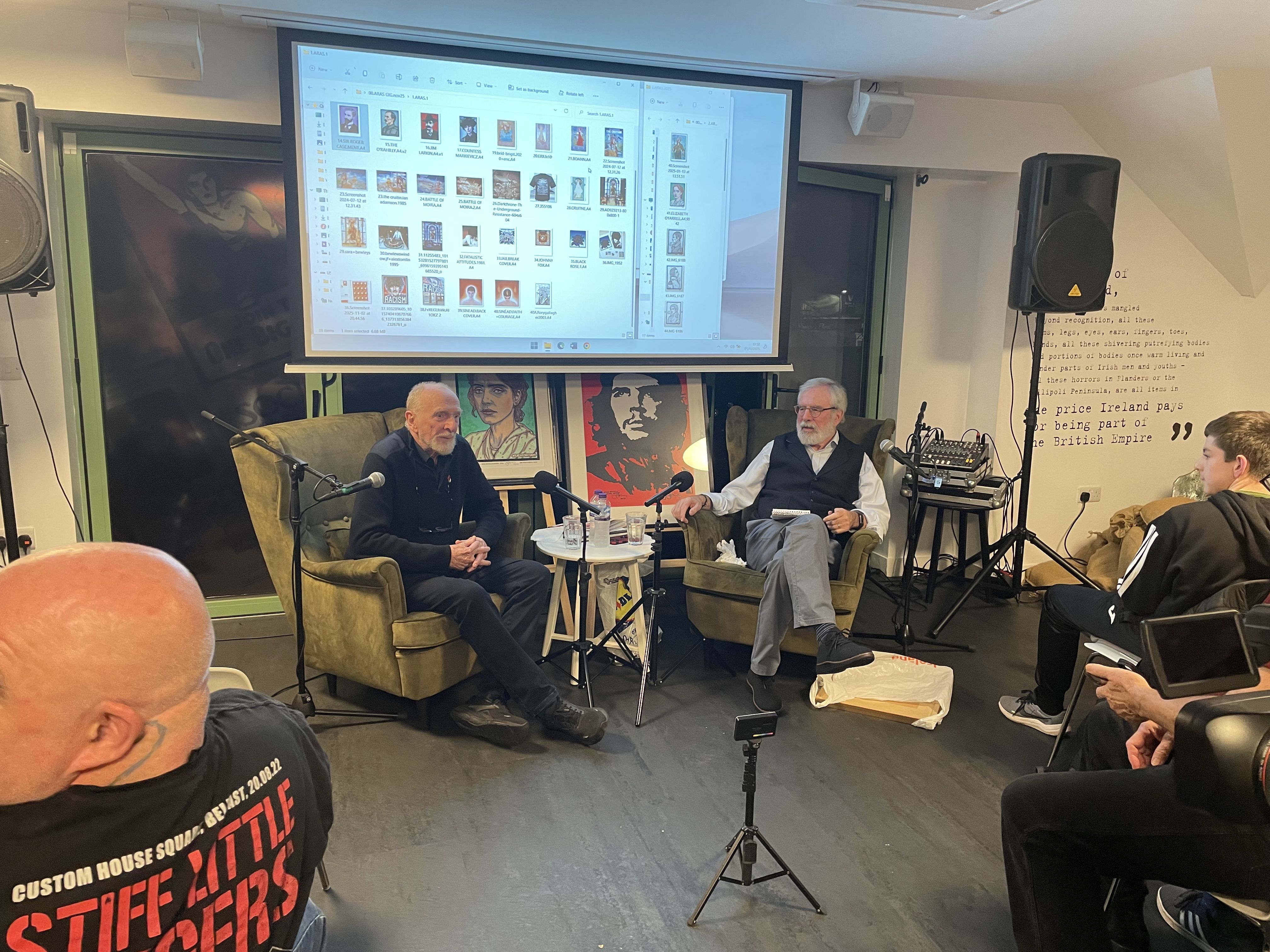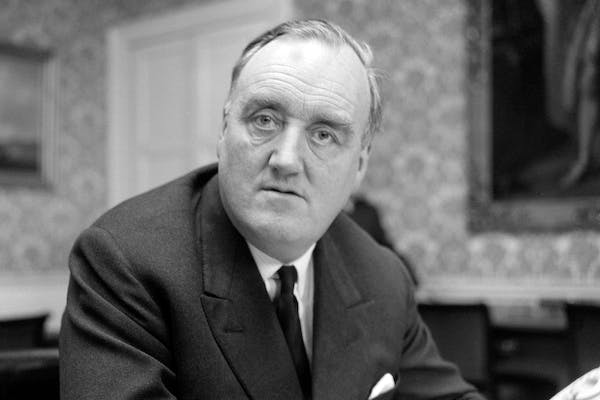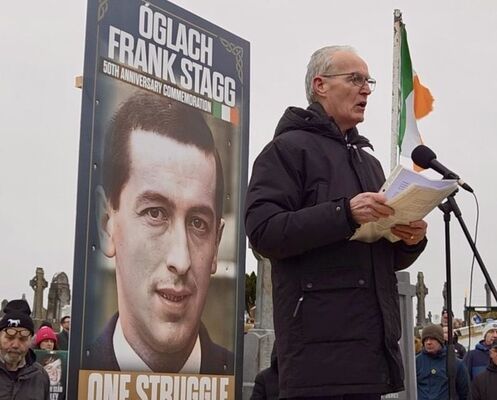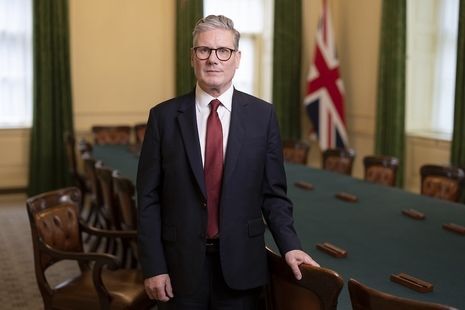MICHELLE O’Neill honoured her commitment to be a First Minister for All when she chose to take part in Sunday’s Remembrance Day ceremony in Belfast. Deputy First Minister Emma Little Pengelly chose not to honour her responsibilities by refusing to attend this week’s inauguration of Catherine Connolly as the 10th Uachtarán na hÉireann. The two choices taken by both leaders highlight again the refusal by unionism to accept the core principles of equality and parity of esteem which are at the heart of the Good Friday Agreement.
Few will be surprised by this. In the years after the 1998 Good Friday Agreement the political institutions were in a constant state of flux. There were many reasons for this, not least was the fact that this was a unique and experimental system of governance for a state that had been built in 1920 on inequality, discrimination and an absence of democratic norms and values.
Unionist political leaders have found it challenging to come to terms with the new realities arising from the Agreement. This was their state – their ‘Northern Ireland’ – a state that was deliberately designed so that nationalists would never enjoy equality of treatment or exercise meaningful political power. David Trimble did his best to manage his party through this changing environment but he couldn’t avoid constantly looking over his shoulder at the DUP, who were accusing him and his party of selling out. The difficulties today within the institutions are rooted in these historic realities.
There is also a growing belief that the DUP is working to a planned and cynical strategy which seeks to maximise the unionist vote in the 2027 Assembly election by pandering to sectarian politics. Jim Allister’s Traditional Unionist Voice (TUV) is whittling away at the DUP’s voter base. In a poll in August the TUV secured more support than the Alliance Party and the Ulster Unionist Party, making it potentially the third largest party in the North. As David Trimble’s Ulster Unionists once feared the DUP, now it is they who fear the TUV. What do they do?
Trimble tried unsuccessfully to out-DUP the DUP. The DUP are now trying to apply his failed approach by seeking to out-TUV the TUV. Add to this mix the DUP’s outrage that Michelle O’Neill is First Minister and we have a recipe for instability.
Their focus is on the next Assembly election. Whatever happens in the meantime as a result of their antics seems of no concern to them. They seem oblivious to the reality that unionism is doing nothing to build support for the union. In fact, they are doing the opposite.
For those of us who are committed to advancing the debate on Irish unity our approach must continue to be open, transparent, based on logic and common sense. The lower they go the higher we go.
Our vision of a new Ireland – a new Republic – must always be based on inclusion and equality and a respect for differences.
A chat with Jim
THE great Jim Fitzpatrick, internationally acclaimed artist, came to Áras Uí Chonghaile for a conversation with me about his life and art. It was a fascinating discussion which Jim dominated with his easy style of reminiscing on those he has worked with over the years, from Rory Gallagher, to Phil Lynott, to Sinead O’Connor and to heavy metal bands.
LIFE AND ART: Jim Fitzpatrick chats with Gerry Adams
Standing in front of a power point presentation, he told of his meeting as a teenager with Che Guevara and the origin of his famous poster of the Cuban revolutionary. His catalogue includes images of Wolfe Tone, Mary Anne McCracken, Robert Emmet, James Connolly and many more. His limited edition poster of Elizabeth O’Farrell, who famously and heroically stood with Padraig Pearse as he delivered the surrender to the British in 1916, raised much-needed funding for the Moore Street Preservation Trust, which is working to prevent most of the 1916 battlefield site from being demolished by a developer. The Trust’s aim is to establish a 1916 Historical Quarter.
Jim’s striking prints of mythical figures of Ireland’s past, his great warriors and gods, were frequently reproduced by republican political prisoners on hankies, plaques and glass. And by others on the gable walls of Belfast and other places.
It was a great evening and Áras Uí Chonghaile was packed to capacity. If you are interested in Jim’s work go to: https://jimfitzpatrick.com/
Thank you, Jim, for taking the time to come to Belfast.
Hilary Benn continues the cavalcade of mediocrity
HILARY Benn is the 25th British Secretary of State since the Conservative government of Ted Heath scrapped the Stormont Parliament in 1972. William Whitelaw was the first. I met him during the London talks in July that year. There was then a gap of 23 years before I met another British Secretary of State, Patrick Mayhew. I have met most of the rest since then.
The 25 were a mixed bunch both in ability and in temperament. Most we had never heard of before they were given the job. Many we never heard of again after they left here. A few were friendly. Some, like Roy Mason, were wannabe generals or spymasters who bought enthusiastically into the counter-insurgency strategies of the spooks, Brit military and RUC. Some, like Merlyn Rees, were bumblers who hadn’t a clue about the North and probably didn’t care; and some were – or thought they were – clever and devious.
Most of them suffered from delusions of grandeur. I used to call it the English disease, but that is probably unfair. Not all English people believe they have the right to rule other countries. But whatever their personalities or politics they all had one thing in common – they were here to defend British national interests, whatever the cost.
And that brings me to the comments of Hilary Benn, our latest colonial governor-general who told the media here that his government “strongly supports the union”. No surprises there. Partition was their idea and they have backed it for over a hundred years. However, it was his claim that “nobody is arguing that there is an appetite for constitutional change here in Northern Ireland” that caused annoyance for many.
This is patently a nonsense.
FROM BAD TO WORSE: Willie Whitelaw was the first in a series of British Secretaries of State of wildly varying demeanour and ability
The reality is that no opinion poll is now complete without a question or questions on Irish unity and on the referendum commitment in the Good Friday Agreement. Only a week before Benn’s comment a lucid poll claimed that a majority (60 per cent) in the North supported the publishing by the British of the criteria for a unity referendum.
Of course, opinion polls are not votes, but nonetheless when taken with the other commentary it is evidence of the interest in constitutional change.
In addition, a succession of political leaders, organisations, political columnists and others have all come out clearly in recent time in support of constitutional change.
As Uachtarán Shinn Féin Mary Lou McDonald pointed out in a letter to Mr Benn, First Minister Michelle O’Neill, Archbishop Eamon Martin, former Taoiseach Leo Varadkar, SDLP leader Claire Hanna and Alliance leader Naomi Long have all “publicly expressed considered views on the various dimensions of constitutional change...Their public contributions demonstrate the very significant public engagement on the issue – something which I am astonished you seem to have missed.”
As well as these comments, the issue of Irish unity was central to the Presidential campaign in the South. It dominated much of the debates and public commentary. In particular, the newly inaugurated Uachtarán na hÉireann Catherine Connolly spoke frequently about her desire to build a new Republic.
Unsurprisingly, Hilary Benn and his NIO minders deliberately chose to ignore all of this. It does not suit their pro-union political agenda. But however much they may try to avoid the issue, the reality is that the conversation on the unity referendum and the ending of partition is well under way across all sections of society. Sticking their collective heads ostrich-like in the sand will not make this issue go away.
The answer is to encourage an open, public conversation in which all issues are discussed and solutions found. In my opinion Mr Benn has no right to rule in Ireland.
No British government ever had that right. No British government will ever have that right. As the Good Friday Agreement makes clear, it will be for the people to decide democratically what shape our shared future takes.
Mr Benn will have no part in that future and he and his ilk will have no say in that.





